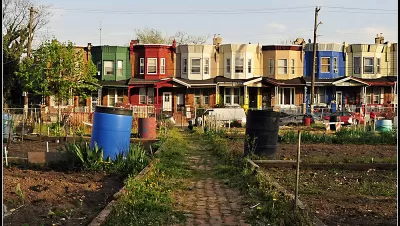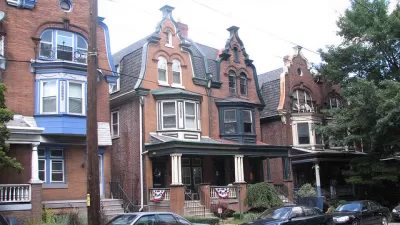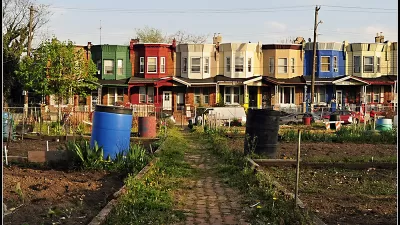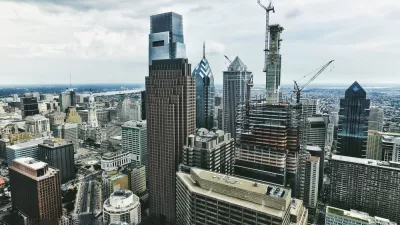The city of Philadelphia offers a case study for the challenges and potential benefits of home repair programs.

An article by Michelle Bond writes on an effort in Philadelphia to maintain and repair existing housing units as an affordable housing program.
Bond describes potential and necessity of the approach:
Philadelphia’s housing stock is old and can be expensive to maintain — challenges in a city with a 23% poverty rate, incomes that aren’t keeping pace with rising home prices, and now a pandemic-induced recession. Philadelphia and other cities across the country have been struggling to address a lack of housing that their residents can afford. Every home that becomes uninhabitable and abandoned or crumbles due to disrepair is one fewer home available to mitigate the affordable housing crisis. Two years ago, the city’s 10-year housing plan identified revitalizing existing housing stock as one of Philadelphia’s greatest challenges. But it’s also one of its biggest opportunities.
While organizations like the Philadelphia Housing Development Corp., Habitat for Humanity Philadelphia, Rebuilding Together Philadelphia, and community development corporations are working to help homeowners with repairs, the need is greater than the resources available for the work, according to the article. The Philadelphia Housing Development Corp. is looking for contractors "to participate in its basic repair and adaptive home modification programs," according to Bond. "Its low-interest loan program saw a spike in applicants over the summer, and the nonprofit is reviewing proposals from additional banks that want to participate."
As a next step, the Philadelphia City Council is "considering a 1% tax on construction to fund affordable housing programs that would help close funding gaps for initiatives such as home maintenance grant programs…"
Some context for the newsiness of this article clearly comes from a recent landmark decision by the city to turn vacant properties over to a community land trust for residents living in homeless encampments.
FULL STORY: Philadelphia’s affordable housing strategy depends on repairing existing homes

Alabama: Trump Terminates Settlements for Black Communities Harmed By Raw Sewage
Trump deemed the landmark civil rights agreement “illegal DEI and environmental justice policy.”

Planetizen Federal Action Tracker
A weekly monitor of how Trump’s orders and actions are impacting planners and planning in America.

Why Should We Subsidize Public Transportation?
Many public transit agencies face financial stress due to rising costs, declining fare revenue, and declining subsidies. Transit advocates must provide a strong business case for increasing public transit funding.

Understanding Road Diets
An explainer from Momentum highlights the advantages of reducing vehicle lanes in favor of more bike, transit, and pedestrian infrastructure.

New California Law Regulates Warehouse Pollution
A new law tightens building and emissions regulations for large distribution warehouses to mitigate air pollution and traffic in surrounding communities.

Phoenix Announces Opening Date for Light Rail Extension
The South Central extension will connect South Phoenix to downtown and other major hubs starting on June 7.
Urban Design for Planners 1: Software Tools
This six-course series explores essential urban design concepts using open source software and equips planners with the tools they need to participate fully in the urban design process.
Planning for Universal Design
Learn the tools for implementing Universal Design in planning regulations.
Caltrans
Smith Gee Studio
Institute for Housing and Urban Development Studies (IHS)
City of Grandview
Harvard GSD Executive Education
Toledo-Lucas County Plan Commissions
Salt Lake City
NYU Wagner Graduate School of Public Service





























